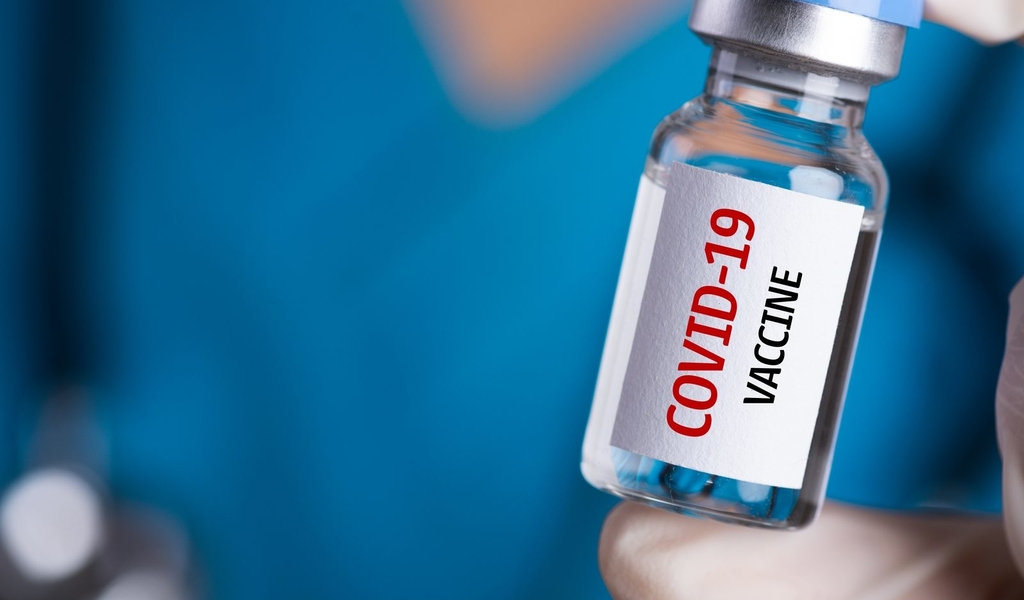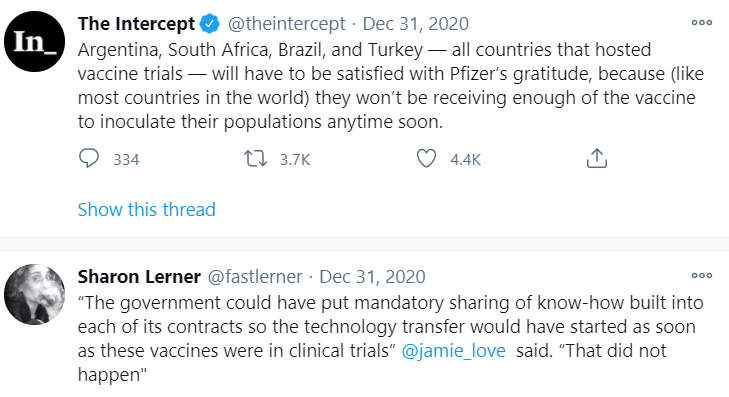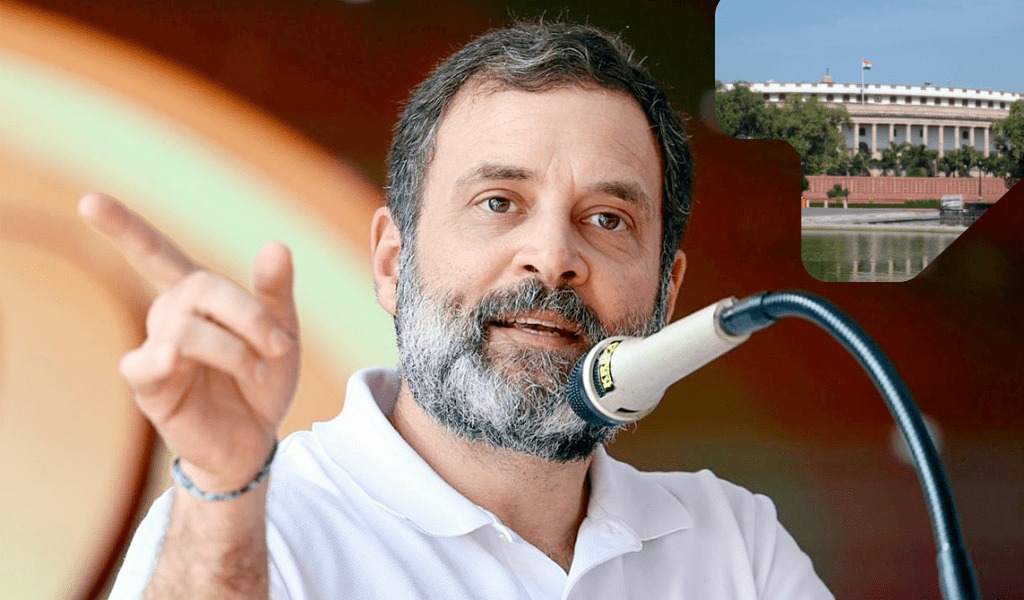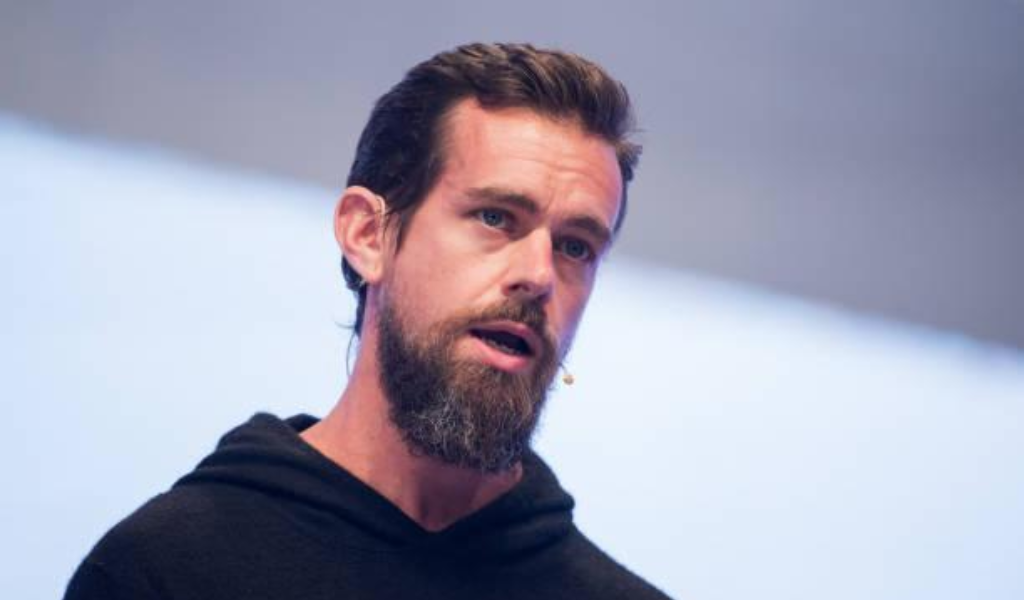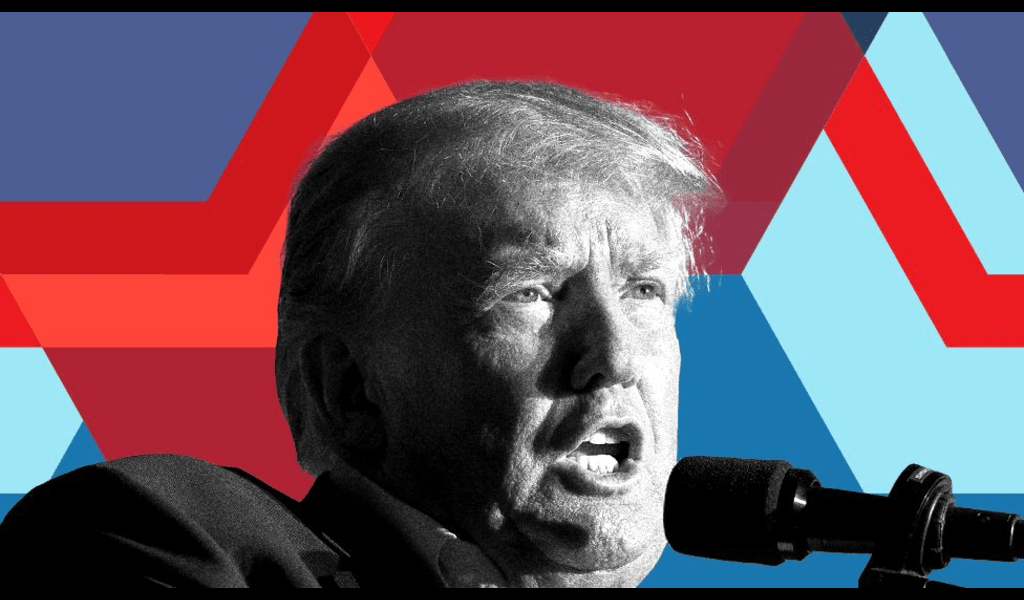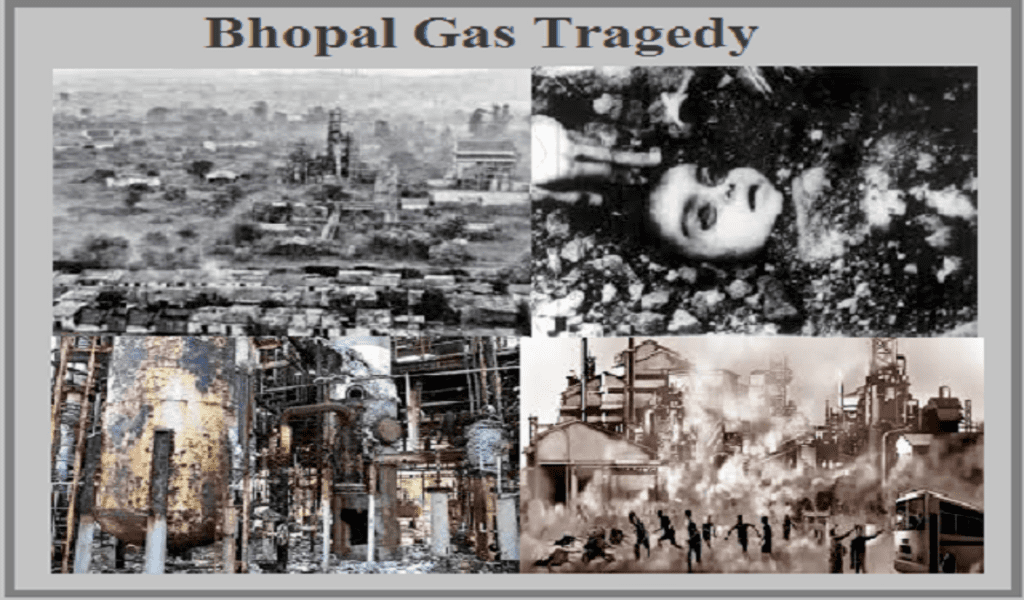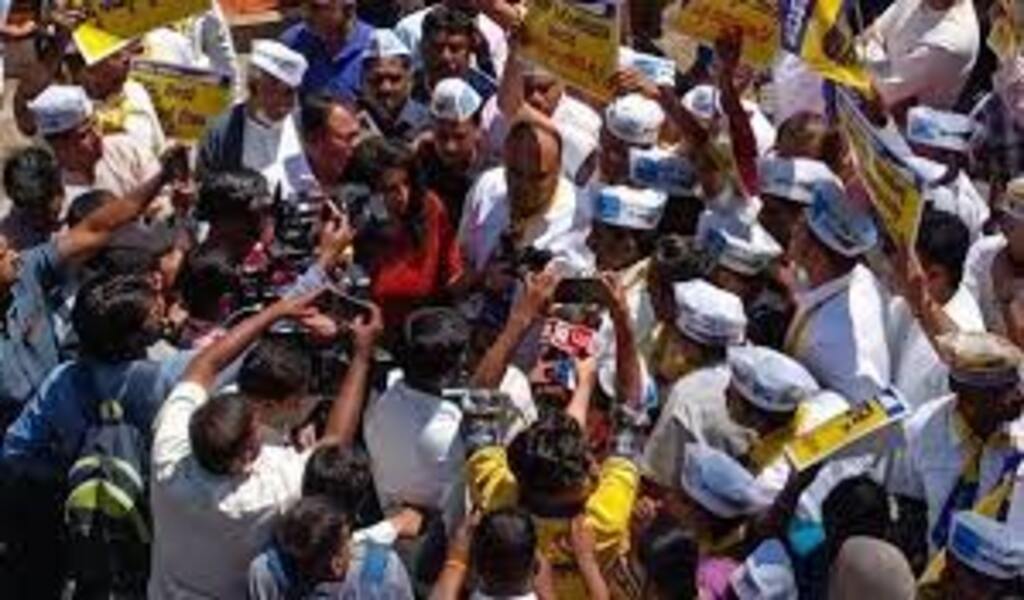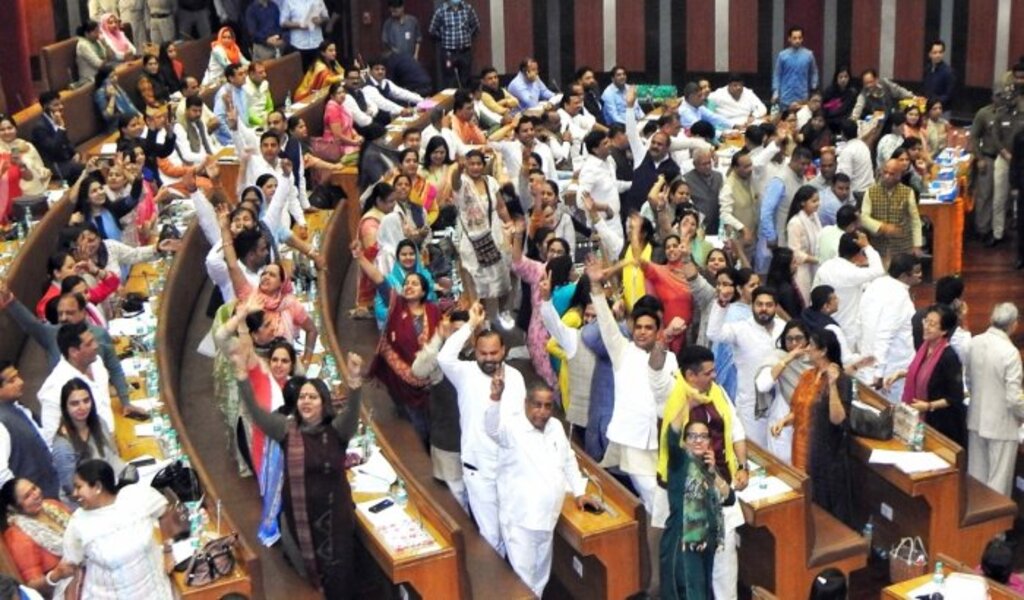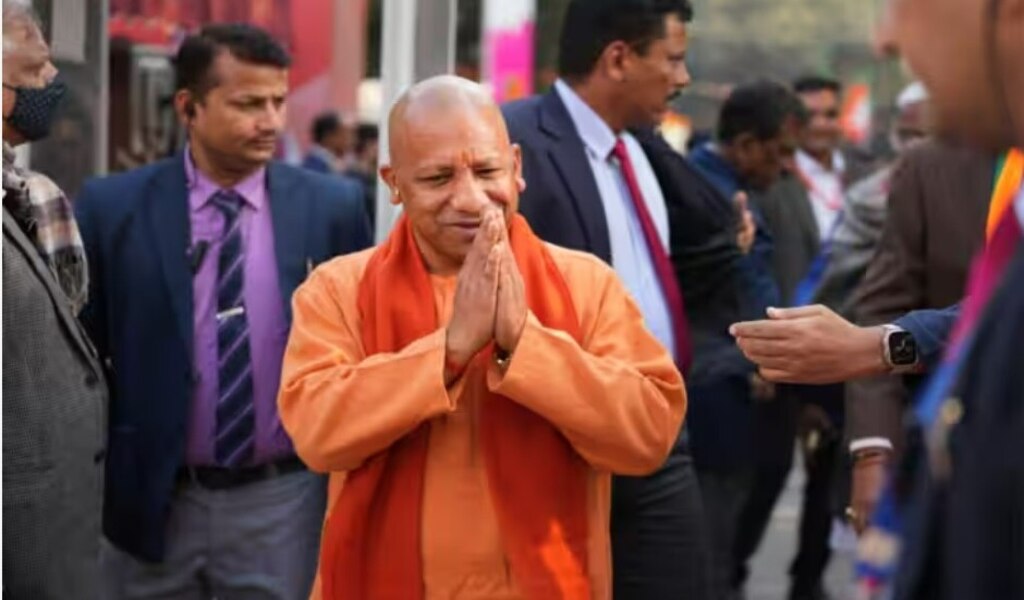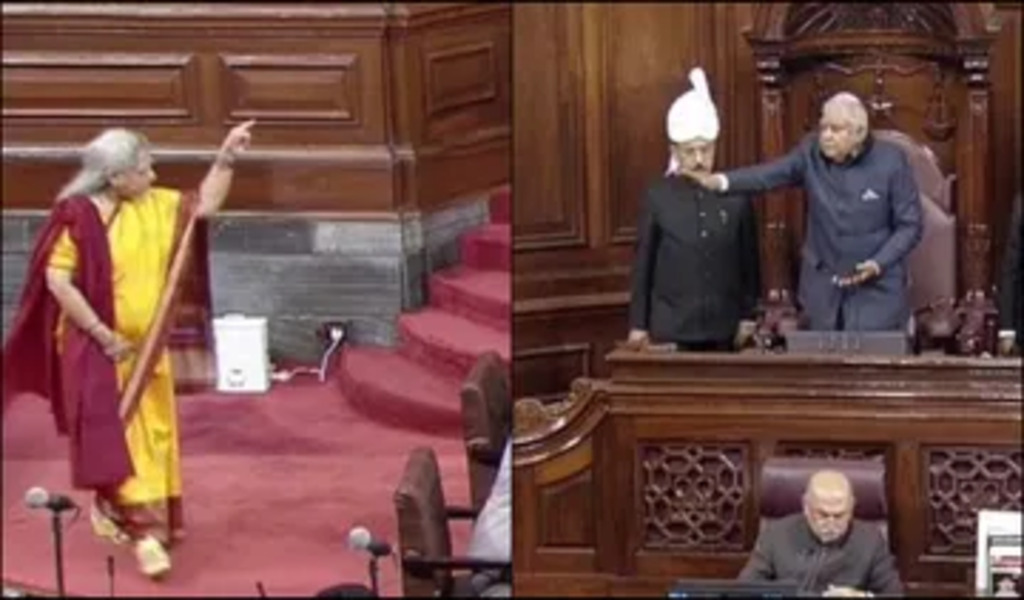COVID-19 Vaccine: A Jim Crow system of distribution ?
As the world graduates towards the vaccine development for the novel coronovirus disease (COVID-19), medical science geared up for probably the largest universal immunization programme this world has seen till date after the Global Polio Eradication drive and the Measles-Rubella (MR) campaign. The COVID-19 Vaccine Global Access Facility (COVAX) led by the World Health Organization and Gavi, the Vaccine Alliance, were created to accelerate the immunization programme and ensure the delivery of the vaccine in a fair manner: from the highest susceptible groups to the lowest. However, governments will have to rely on the mercy of pharmaceutical companies like Pfizer and BioNTech. The first world would secure the doses for its population while the low-income states would have to wait.
It has been estimated that countries like the United States and Germany have contracted enough doses for their population to be inoculated several times. The interantional vaccine distribution efforts seems to be hindered by power and wealth. Credible media sources like The Lancet and several netizens on twitter brought up this issue:
According to the reports, The United States has pre-purchased around 100 million doses of the Pfizer vaccine for $1.95 billion already and has secured another 100 million doses. The United States has also purchased 200 million doses of the Moderna vaccine, which is also highly effective against Covid-19. Those doses are due by the second quarter of 2021, and the government may intend to buy up to 300 million more doses. The country also has contracts for additional vaccine doses from Ology, Sanofi, Novavax, and Johnson & Johnson.
Germany has till now secured more than 300 million vaccination doses from different manufacturers. The UK has secured more than 200 million doses of the Moderna vaccine. India is planning to secure almost 600 million doses of the Covid-19 vaccine by supporting its manufacturing capacity while countries like Sri Lanka will have to depend on the mercy of the WHO which has promised 10 percent of the vaccine distribution programme to the country. A report published in The Economist highlights this system of new-age apartheid:
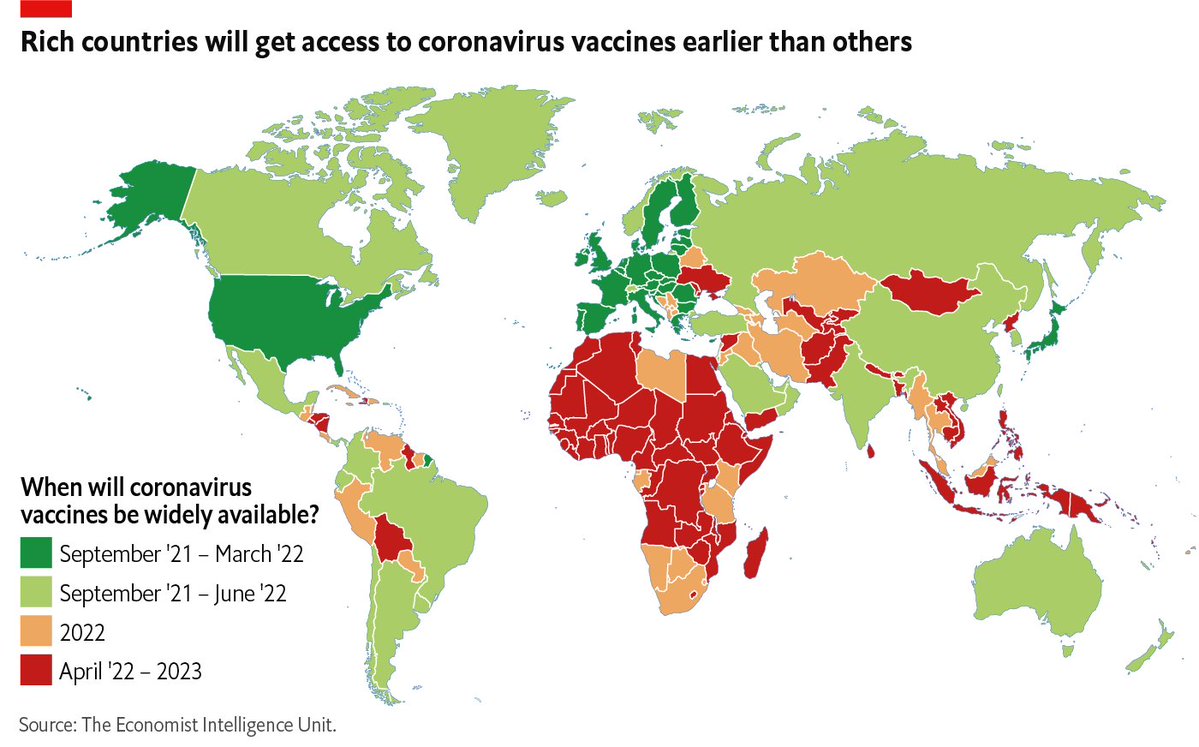
Earlier last year, the WHO’s Director General Dr Tedros Adhanom Ghebreyesus had appealed to the leaders of rich countries to “honor their pledges” , i.e., to fund COVID-19 vaccine programme in a sufficient manner to be able to immunize the highest risk groups across the world.
"Our political leaders have pledged to make vaccines a global public good, but that pledge has to be translated into action, I call on world leaders to honor their pledges."
"Sharing the vaccine and having the inoculation everywhere means faster recovery and it’s in the interest of each and every country in the world, lives and livelihoods will get back to normal.", he further added.
However it was the Director General himself who raised concerns over the vaccine distribution terming COVAX as "nothing more than just a noble gesture."
There seems to exist an ethical problem: the low-income states would be unable to fund the vaccine developmnt programmes while the rich, with access to resources and technology would progress towards the immunization programme. This discrimination is and was prevalent as far as we can go in history.
Gilead, which holds the patent on the life-threatining hepatitis C drug, sofosbuvir, provides a clear illustration of how deadly the dynamics of distribution can be. According to the non-profit group "Make Medicines Affordable", only about one in seven people who needed the company’s lifesaving drug in Brazil had received it as of mid-2019. In Brazil alone, thousands died of the treatable disease.
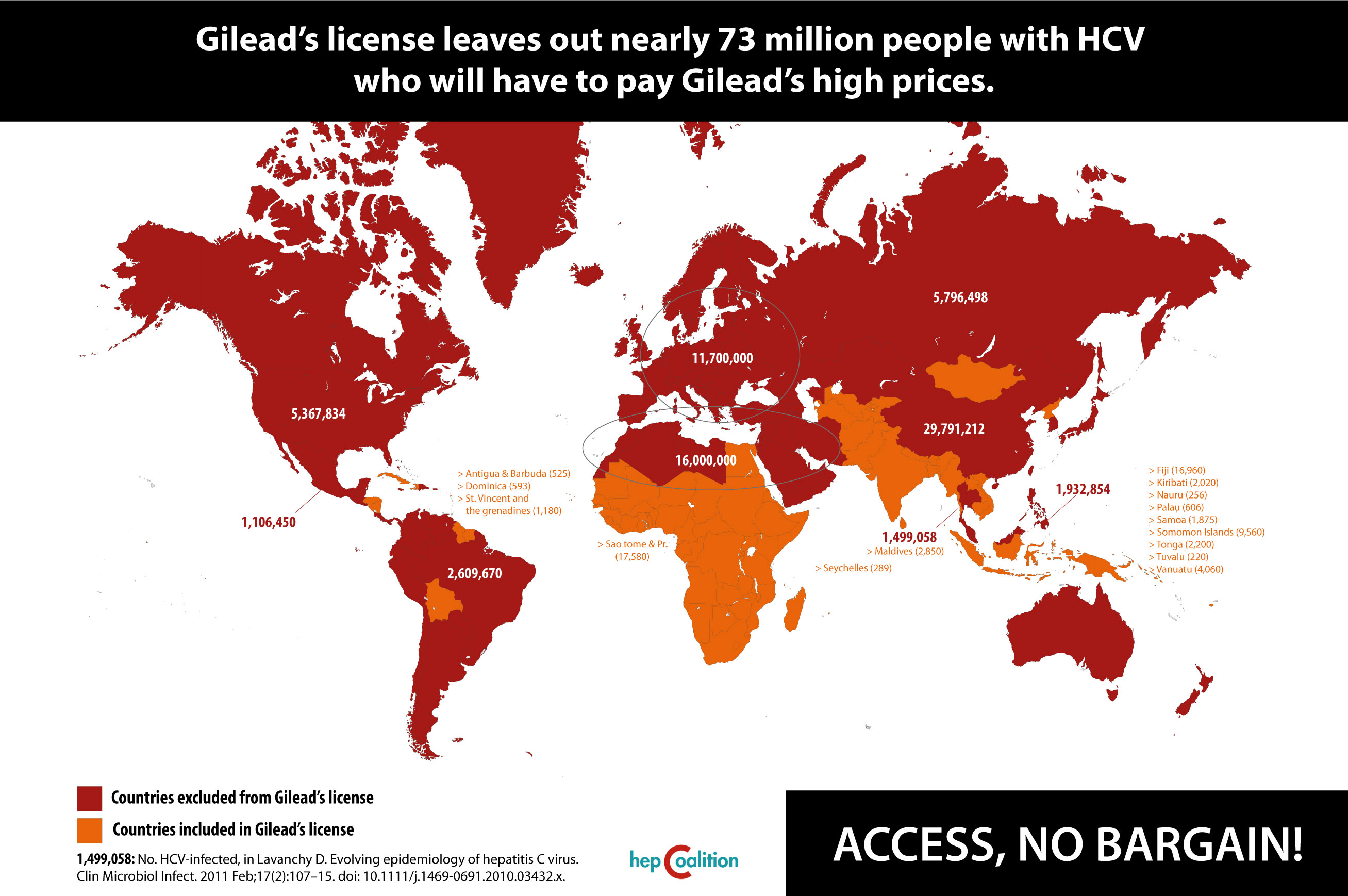
Access to drugs get delayed in developing countries, as is the case for life-saving HIV medications, which are still unavailable to some 15 million infected people around the world. In addition, a drug called Daraprim that's used by some AIDS and transplant patients skyrocketed overnight from $13.50 to $750 a pill having a 5000 percent hike few years ago. It even led to Hillary Clinton tweeting about it on her social media platform.
As India too gets ready to roll out its vaccination programme against COVID-19, a question persists, not just for India, but for the world: will the distribution of the new vaccine intensify social inequality ? Only time would be able to answer the question.
To keep yourselves updated with what has been trending on the digital sphere, visit and subscribe to checkbrand.online, an online sentiment analysis tool which uses state of the art advanced AI technologies to monitor and bolster your digital footprint.
CATEGORIES
- Digital Marketing
- Marketing
- Entertainment
- Medical
- Science and Technology
- Politics
- Sports
- Environment
- Campaign
- Interview
- Viral
- What's Trending
- Trending News
- Viral Videos
- Youtube Trends
- Social Media Ranking
- Twitter Trends
- Google Trends
- Top Politicians
- Top Cricketers
- Top Influencers
- Best Campaigns
- Google News
- News
-
 Oct 11, 2020
Oct 11, 2020SEO Content Writing Vs. SEO Copywriting:...
-
 Dec 15, 2020
Dec 15, 2020#Karnatakaiphoneplantagitation: Workers...
-
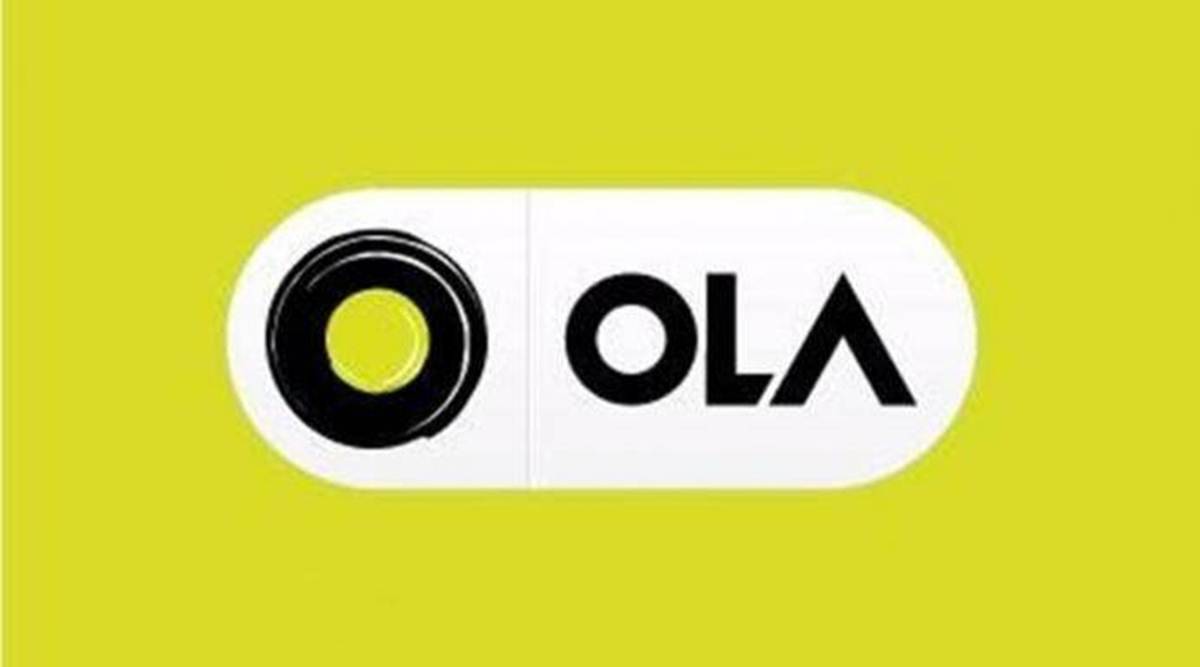 Dec 15, 2020
Dec 15, 2020#OLA Invests ₹2400 Crores For Our Futur...
-
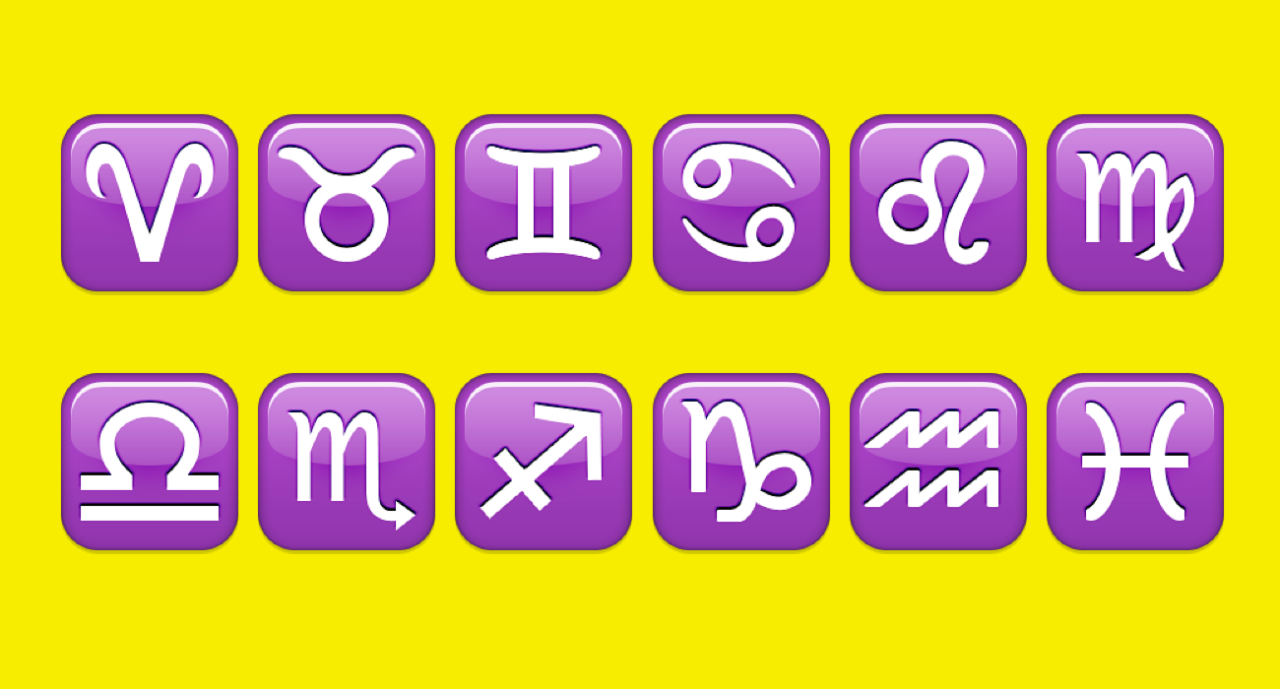 Dec 15, 2020
Dec 15, 2020#Snapchat Launches Astrology Profile
-
 Dec 15, 2020
Dec 15, 2020Know Why #BOYCOTTJIOSIM Is Trending On S...
-
 Aug 01, 2023
Aug 01, 2023India's Chandrayaan-3 On Track For Lunar...
-
 May 17, 2023
May 17, 2023Zara Hatke Zara Bachke Trailer Review(Ra...
-
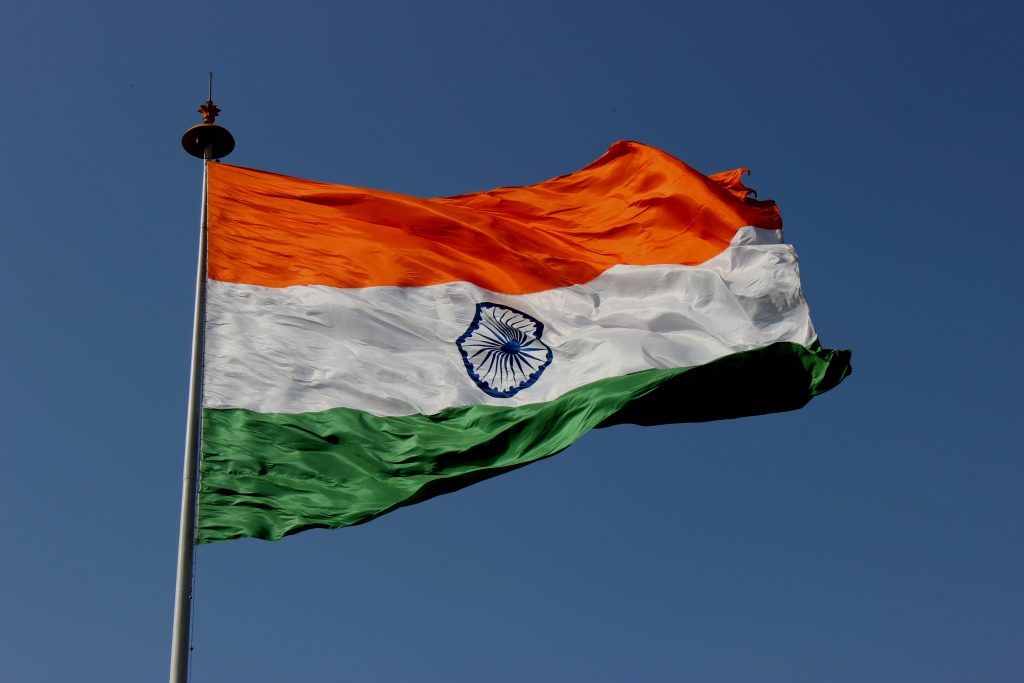 Aug 04, 2022
Aug 04, 2022'Har Ghar Tiranga' Campaign Created Stor...
-
 Dec 16, 2020
Dec 16, 2020#Skillhaitohfuturehai: Mahindra's Flagsh...
-
 Dec 15, 2020
Dec 15, 2020#OLA Invests ₹2400 Crores For Our Futur...
HIGHLIGHTS
- Realme Pad Specifications Teased, Will C...
- MARKETS: Sensex Down 300 Pts, At Days Lo...
- Afghanistan Crisis Live Updates: NIA Chi...
- Women Will Be Admitted To NDA, "Historic...
- Taliban's New Education Minister Says Ph...
- India's T20 World Cup Selection Question...
- New JioFiber Quarterly Broadband Plans I...
- Explained: How Your Cat Got Its Stripes...
- Who Is Aesha Mukherji? All You Need To K...
- Long Live Test Cricket While We've Virat...


